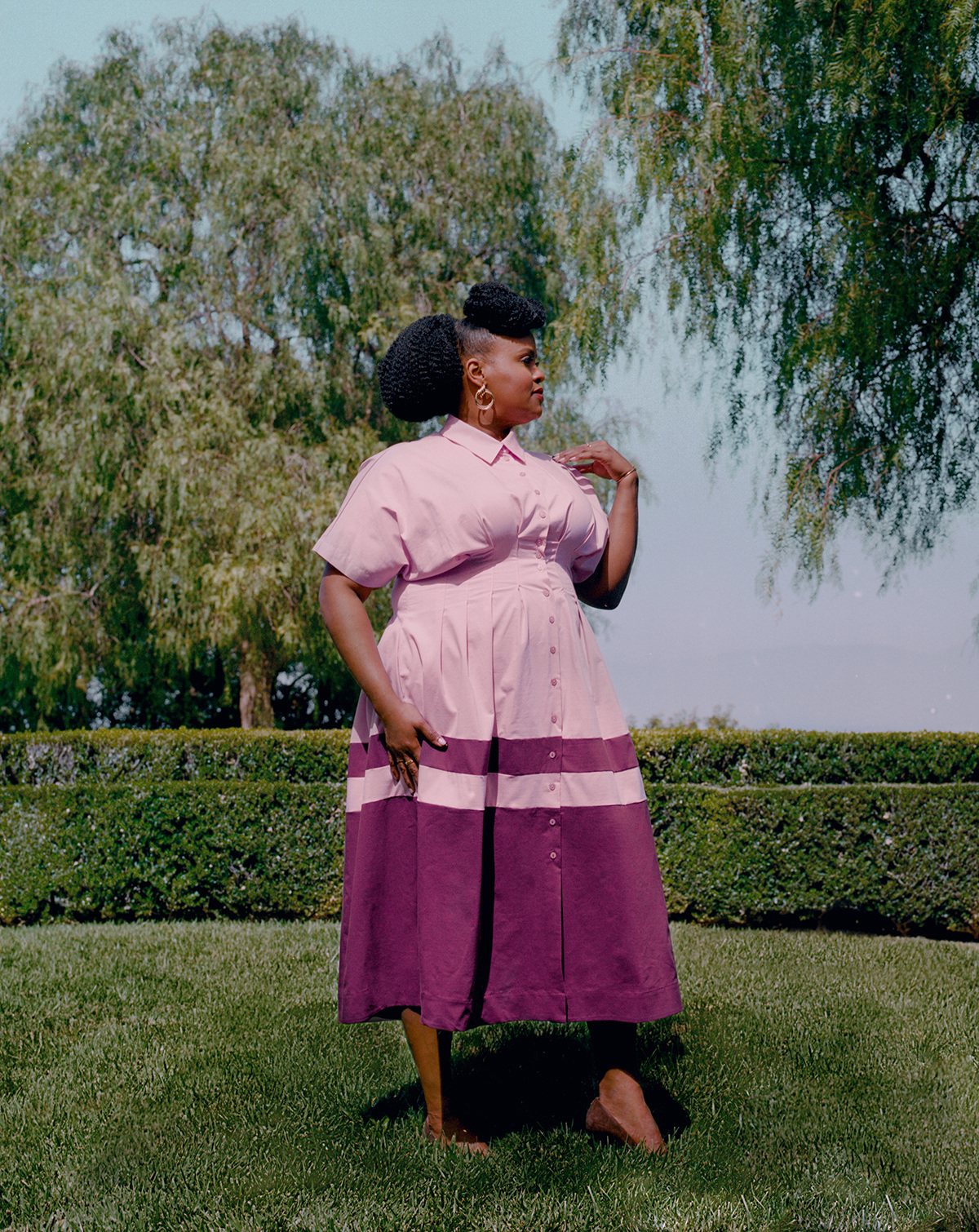
While the world catches up to the brilliance of Natasha Rothwell, she’s been “10 toes down” in developing characters and taking on roles that offer her, and her audience, a 360-degree view of what it means to be “whole” onscreen.
Since 2014, we’ve caught glimpses of Rothwell’s wit and wisdom as a writer on SNL and as Issa Rae’s hilarious friend Kelli on HBO’s Insecure. In recent years, her star has reached new heights with roles like Belinda, the loving and striving spa manager on the hit Max show The White Lotus, and Mel, a broke JFK airport worker who sets out on a journey of self-discovery in the Hulu series How to Die Alone, which Rothwell created.
“It feels like an expansion that I’m now allowing others to witness,” she shares over a recent afternoon Zoom. She apologizes as her black goldendoodle skitters by, leaning down to ruffle the puppy’s ears. Rothwell’s soft curls and deep brown skin glow on my laptop screen. She exudes the ease and intention of someone who has found their footing. “I’ve been feeling that growth for some time, and I think it does, in fact, feel like my moment,” she reasons.
Rothwell smiles as she speaks, but impostor syndrome seems to creep up on her midsentence. “I say that with a lot of trepidation because, despite my vocation, I can be pretty shy,” she admits. “It’s ultimately thrilling to be in this place where I’m garnering so much respect in my industry and having so many more people exposed to my work. But taking up space as a fat, Black woman; as a creator; as someone who has, for her whole life, desperately wanted to be seen—that’s equally terrifying.”
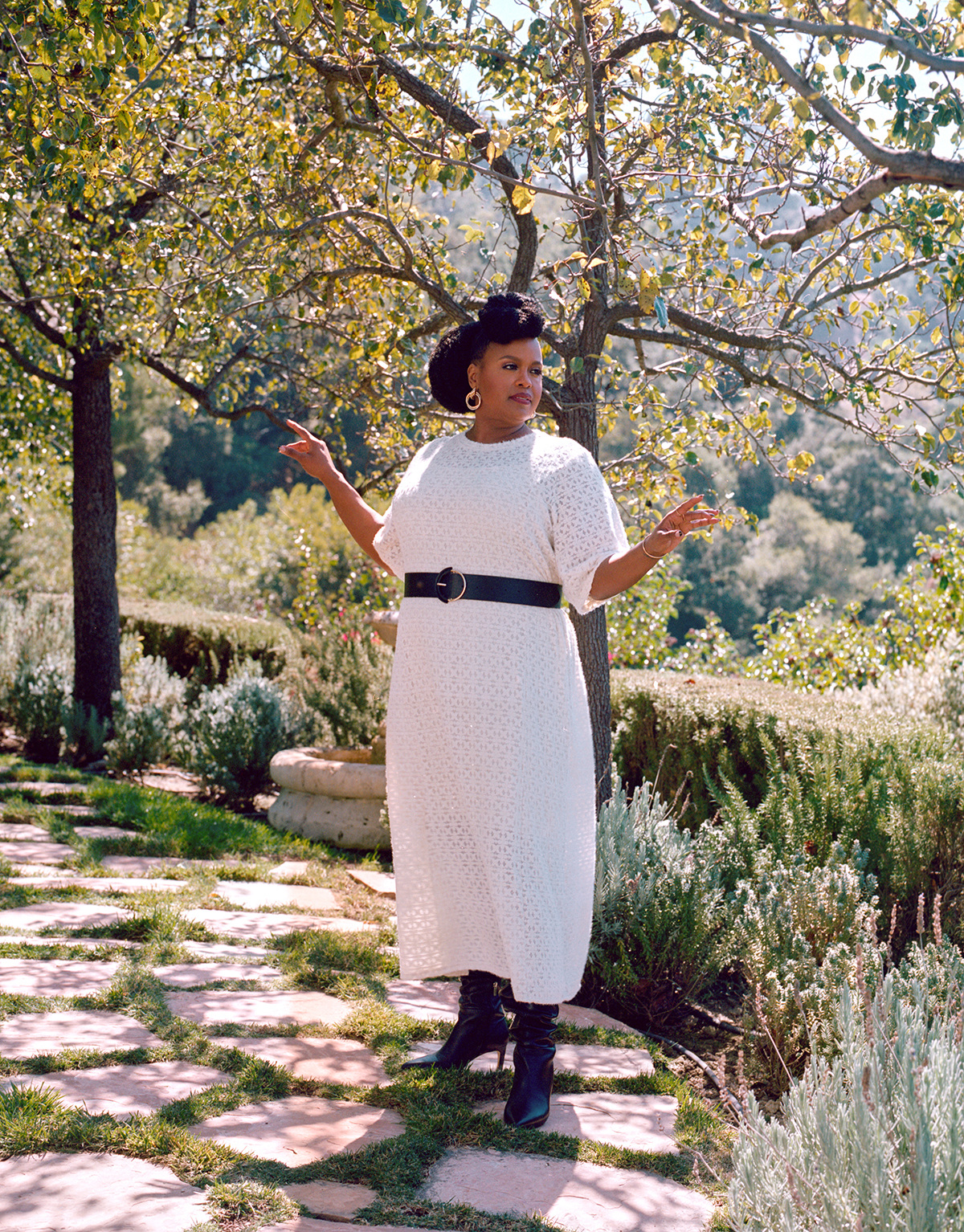
Rothwell hasn’t let those feelings overwhelm her. As she developed How to Die Alone (a seven-year dream come to life), she let her full self show up—even the “unhealed parts,” as she puts it. In one scene in the season finale, her character strips down to her bra and panties on a public beach—a level of public exposure Rothwell has never faced in her personal life. Doing it on television added new layers of vulnerability, but she pushed through, feeling powerful and new when she emerged. “It’s painstaking,” she says. “You can only be as honest as you’ve been with yourself.”
She finds that her Emmy-nominated role as Belinda on The White Lotus is another opportunity to be a more expansive version of herself. As she heads into season three alongside a star-studded cast that includes Parker Posey and Carrie Coon, Rothwell challenges what audiences might expect from her screen presence. “When you walk through the world as a Black, plus-size woman, there are a lot of expectations people have based off of their preconceived notions of film and television,” she explains. “The mischievous side of me really delights in subverting those expectations.”
Rothwell was born in Wichita, Kansas, but spent her childhood on military bases around the world. Her father, who was in the Air Force, and her mother, who worked in health care, fostered a sense of pride in whatever work she chose to pursue. Ultimately, it was theater, then the comedy circuit, that beckoned Rothwell. But it was never just about the stage. Her occupation as an actor has always been accompanied by a role as an advocate for the issues she feels are worth the fight: mental health care, voting, and media representation.
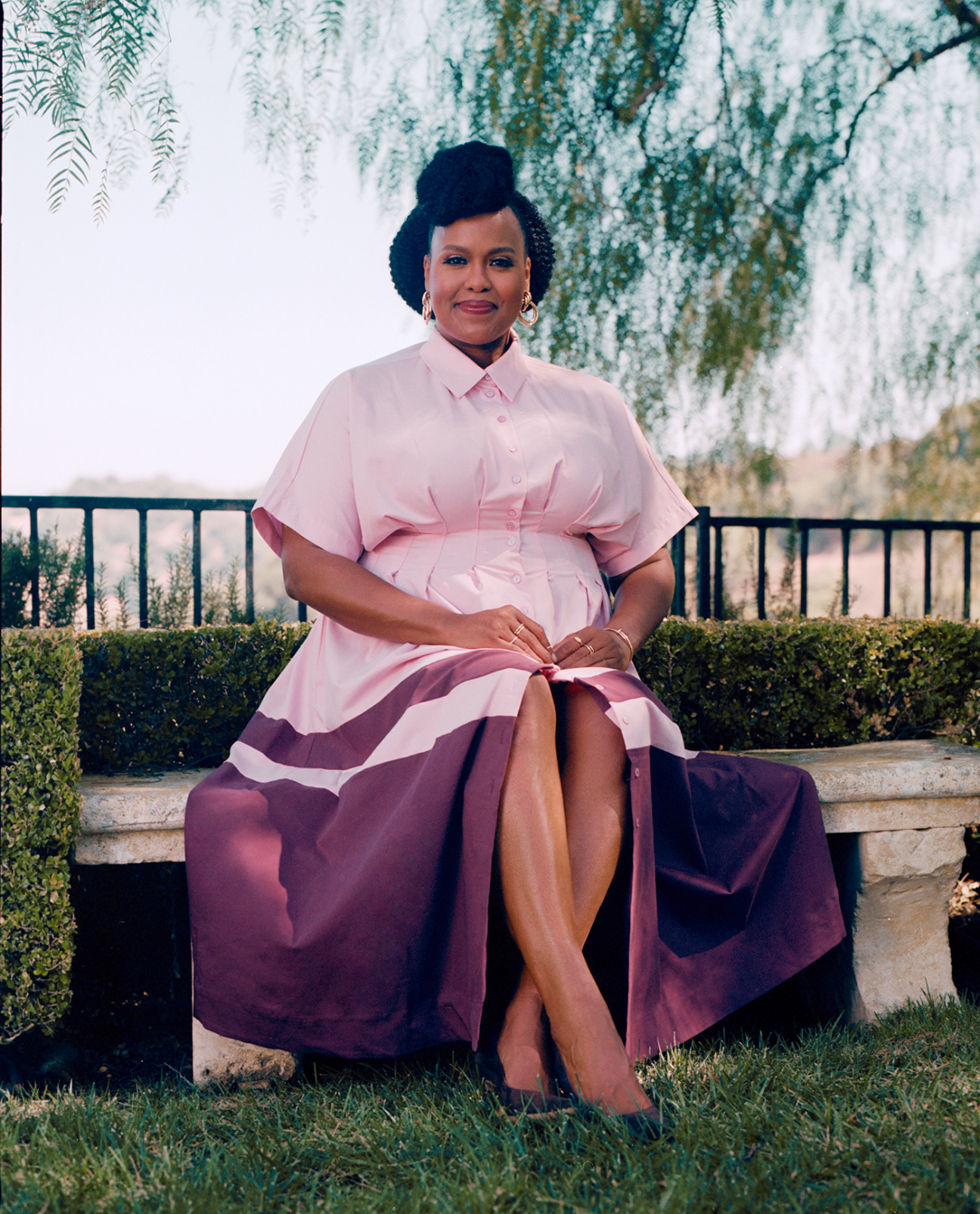
Those values pulled Rothwell into developing a production company of her own, Big Hattie Productions, named after the late Wichita-born actor Hattie McDaniel, who is best known for her Academy Award–winning role as Mammy in Gone with the Wind. Rothwell stumbled upon the film as a teenager working at Blockbuster. For the first time, she saw someone onscreen who looked like her.
“I saw the deference the other actors gave to her in each scene, and how she demanded the attention of every person that she engaged with in that film, and I saw very clearly why she won the Academy Award,” Rothwell says. “My production company is about subverting expectations, demanding that attention, and centering the voices that are often marginalized in the industry.”
When I ask Natasha where her inspiration is taking her next, she carefully avoids specifics but makes one thing clear: “I’m very picky about what I do; I’m very deliberate about the projects that I take on. [But] each one channels the spirit of Hattie McDaniel—the spirit of being so good they can’t ignore you.”
Hair by Larae Burress
Make Up by Yvettra Grantham

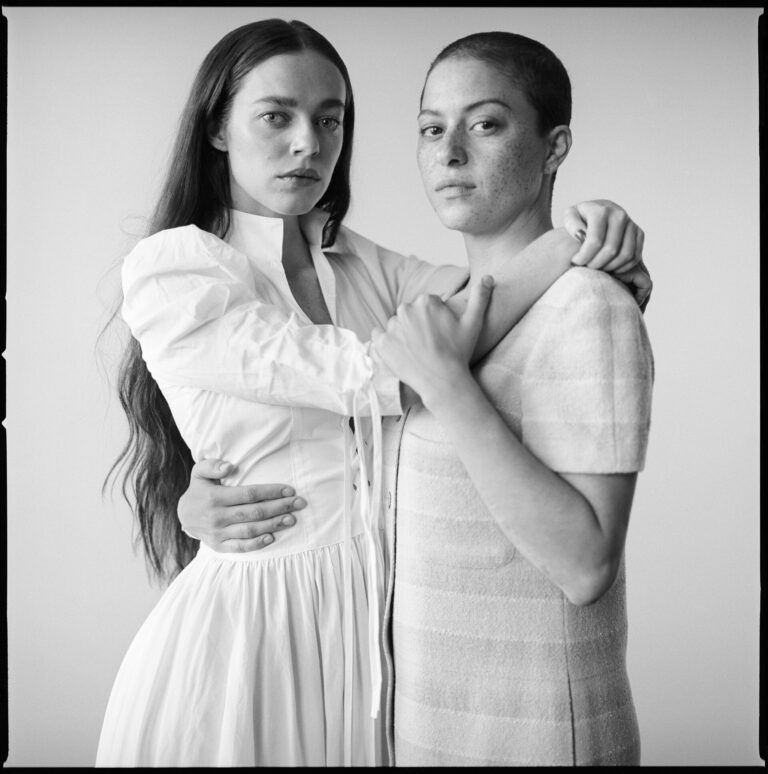
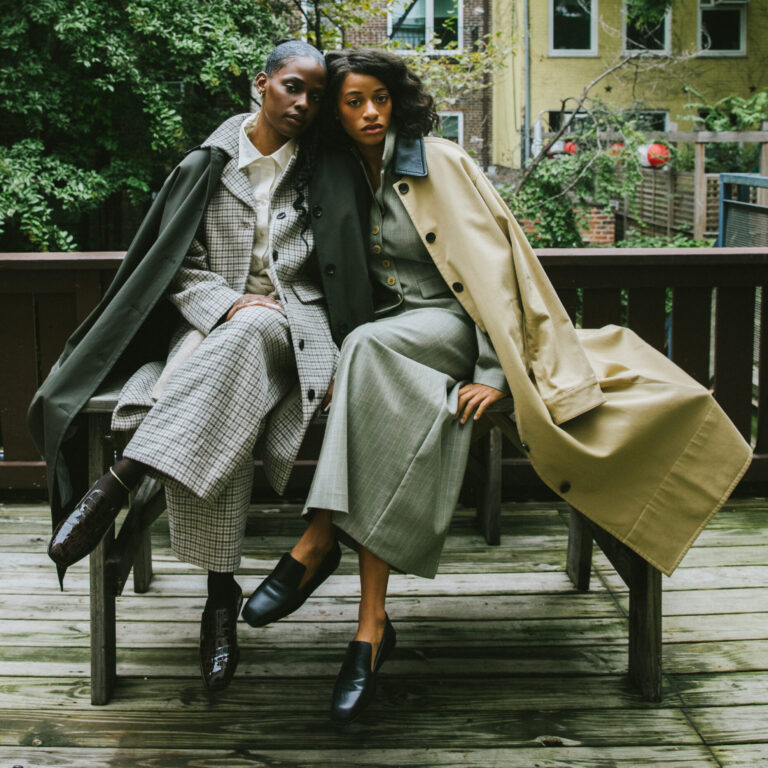
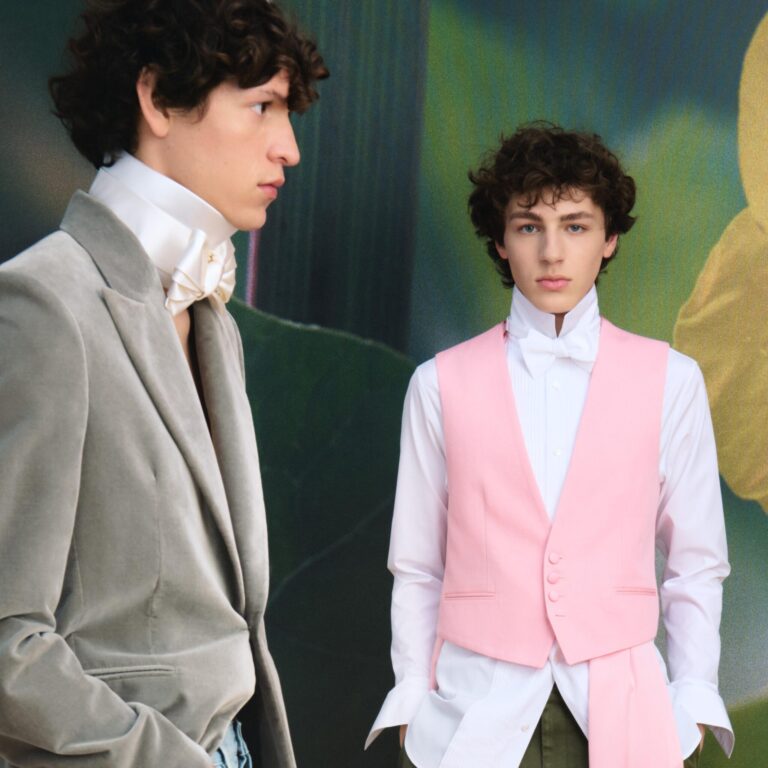
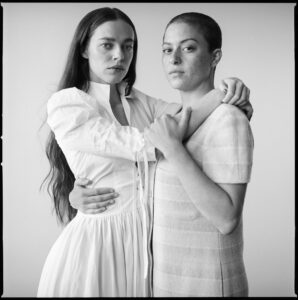

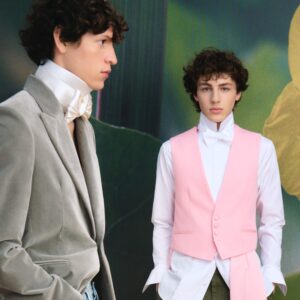



 in your life?
in your life?

